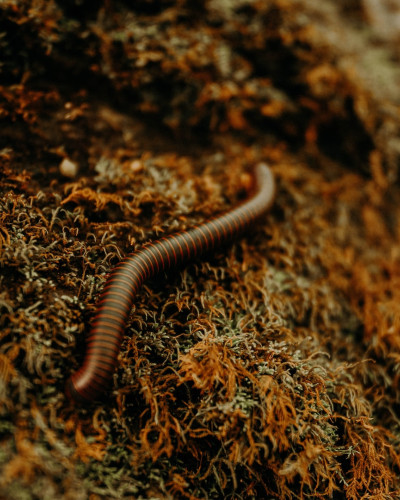How to Make Compost to Feed Your Plants
Composting is an easy and effective way to reduce waste, feed your plants, and improve the health of your soil. Composting is the process of breaking down organic material into a nutrient-rich soil amendment that can be used to fertilize gardens and potted plants.
Benefits of Composting
The benefits of composting are numerous. It can help reduce household waste by up to 30%, while also returning essential nutrients back into the soil. Compost also helps to improve soil structure, which in turn increases water retention capacity and drainage. This leads to healthier plants with better yields and fewer pests or diseases. Additionally, compost acts as a natural fertilizer for plants, providing them with all the nutrients they need for optimal growth without any harmful chemicals or toxins.
Types of Compost
There are several types of compost available for gardeners to use in their gardens or pots. Green waste such as grass clippings, leaves, twigs and other yard debris make great compost materials as they contain essential nutrients that help break down other organic materials faster. Food scraps such as vegetable peels, eggshells and coffee grounds are also great additions to a compost pile as they provide additional nitrogen content for quicker decomposition rates. Manure from chickens or horses is another excellent source of nitrogen-rich material that can be added to a compost pile or bin.
How To Start Composting
Starting a compost bin or pile is fairly simple and requires little effort on your part once you have gathered all the necessary materials together. First you will need a suitable container for your compost such as a plastic bin or wooden box that has good air circulation throughout it. Next you will need some organic material such as green waste and food scraps that you can add in layers along with some soil if desired (this will help kickstart the decomposition process). Finally, add some water until everything is damp but not soggy – this will help speed up the decomposition process even further! Once everything is set up correctly you should begin seeing results within a few weeks depending on how often you turn over your compost pile/bin contents.
What To Put In Your Compost Bin
When adding material to your compost bin there are certain items that should always be avoided due to their potential toxicity levels or slow decomposition rates: meat products; dairy products; oil-based products; pet droppings; diseased plants; weeds; synthetic fertilizers; treated wood chips; sawdust from pressure-treated lumber; coal ash; human/animal feces; glossy paper/cardboard/plastic bags etc… All these items should be disposed of separately in order for your compost pile/bin system to remain healthy and free from contaminants!
How To Maintain Your Compost
Maintaining a healthy compost bin requires regular attention in order for it reach its full potential – this includes turning over its contents every few weeks (or more frequently if desired) in order for oxygenation levels remain high enough for bacteria & fungi activity (which breaks down organic matter). Additionally, adding small amounts of water periodically can help keep things moist without becoming soggy – too much moisture however can lead to anaerobic conditions which can cause bad odors & slow decomposition rates so avoid over-watering at all costs!
Tips For Faster Composting
If you’re looking to speed up the decomposition process there are several things you can do: chop up large pieces into smaller ones before adding them into your bin – this will create more surface area for bacteria & fungi activity thus speeding up decomposition times significantly; mix different types of materials together instead of layering them – this encourages faster breakdown due mixed nutrient levels & improved aeration levels throughout the bin contents; add ‘brown’ materials such as dead leaves & twigs alongside ‘green’ materials like grass clippings & food scraps – this provides both carbon & nitrogen sources needed by bacteria & fungi respectively thus speeding up decomposition times even further!
Using Your Compost
Once your finished compost has been created it’s time to start using it! The best way is usually through direct application onto garden beds or potted plants where it will slowly release its beneficial nutrients over time without any risk of burning delicate roots systems like chemical fertilizers may do if used incorrectly! Alternatively you could use it as mulch around trees & shrubs where its slow release properties offer long term protection against drought stress caused by heat waves during summer months etc…
Troubleshooting Common Problems
Occasionally problems may arise when making your own compost such as bad odors emitting from bins/piles due anaerobic conditions caused by too much moisture being present - simply turn over contents more frequently & allow air pockets between layers when adding new material - this should solve most issues quickly! Slow decomposition rates may also occur if there isn't enough nitrogen present - simply add some manure (or other nitrogen rich material) alongside carbon based sources like dead leaves etc...to balance out nutrient levels again - this should kickstart things back into action again!
Conclusion
Composting is an easy yet highly effective way to reduce household waste while helping improve overall soil health at the same time! With just basic knowledge about what materials are suitable for adding into bins/piles along with regular maintenance practices anyone can make their own nutrient rich fertilizer without any special equipment required - plus it's free so why not give it a try today?

